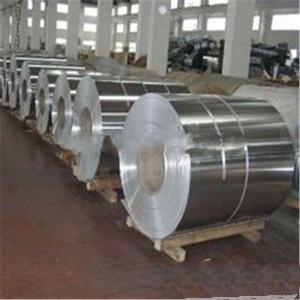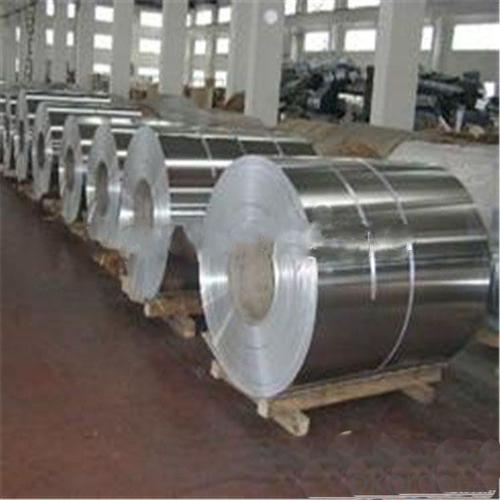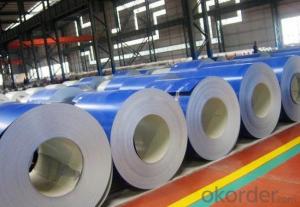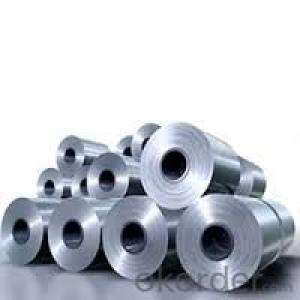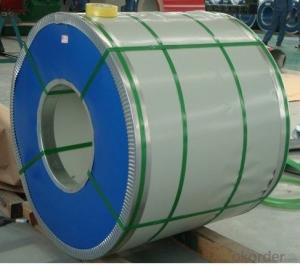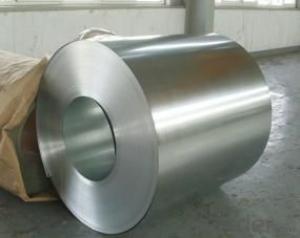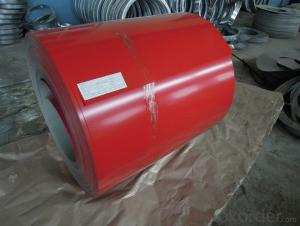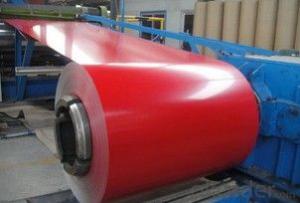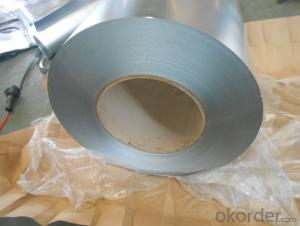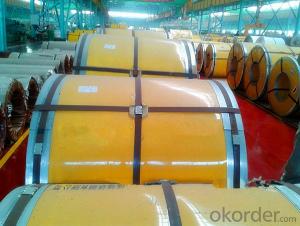Galvanized Steel Coil High Quality
- Loading Port:
- Qingdao
- Payment Terms:
- TT or LC
- Min Order Qty:
- 1000 PCS
- Supply Capability:
- 20000 PCS/month
OKorder Service Pledge
OKorder Financial Service
You Might Also Like
OKorder is offering High Quality Galvanized Steel Coil at great prices with worldwide shipping. Our supplier is a world-class manufacturer of galvanized steel and one of the largest production bases in northern China with a strong technical workforce and advanced equipment. We have supplied more than 400000 metric tons of galvanized steel annually worldwide utilizing two full production lines.
The intended use of High Quality Galvanized Steel Coil
Our High Quality Galvanized Steel Coil is ideal for:
Fabricating applications
Manufacturing applications
The advantages of our High Quality Galvanized Steel Coil
Not only is OKorder's High Quality Galvanized Steel Coil of the highest quality and reliability, we are able to quickly ship orders within 20 days of receiving a deposit or original L/C. We also offer training with experienced engineers to ease installation. Products are designed according to customer requirements and are all durable, boast high stiffness and load-bearing qualities, and are recyclable. All products are shipped with ISO9001 & SGS certification as well as JIS 3302, ASTM A653, EN10143 standards.
Main features of High Quality Galvanized Steel Coil
Additional OEM casting and forging services available
Shipped within 20 Days TT or LC at Sight
FAQ:
Q1: Why buy Materials & Equipment from OKorder.com?
A: All products offered byOKorder.com are carefully selected from China's most reliable manufacturing enterprises. Through its ISO certifications, OKorder.com adheres to the highest standards and a commitment to supply chain safety and customer satisfaction.
Q2: How is our High Quality Galvanized Steel Coil manufactured?
A: Our products are manufactured strictly according to national and international standards, with tests conducted on every product before delivery. Our quality certifications and test reports are available upon request.
Q3: Are products guaranteed?
A: If a product's quality does not match the description provided prior to your order, OKorder offers a full refund.
Q4: Why should you choose us?
A: Sourcing decisions are made based on quality, and then price. We can provide you with both. Additionally, we offer professional product inquiries, product knowledge training (for agents), rapid delivery with factories located near ports and convenient transportation.
Specifications:
Thickness: 0.14mm – 4.5mm TCT
Width: 20mm – 150mm
Individual Weight: 3 – 20MT
Surface Finish: Chromated, skin pass, oiled, slightly oiled, dry, fingerprint-resistant
Surface structure: Zero spangle, minimized spangle, regular spangle, large spangle
Coil ID: 508mm or 610mm
Coating: 40-500g/m² Zinc
Steel Grade: DX51D / DX52D / DX53D / S250, 280, 320GD
Standard: JIS 3302, ASTM A653, EN10143
Temper:
Full Hard: 95 HRB, G500 – G550
Commercial Quality: 70 HRB, G300 – G350
Images:
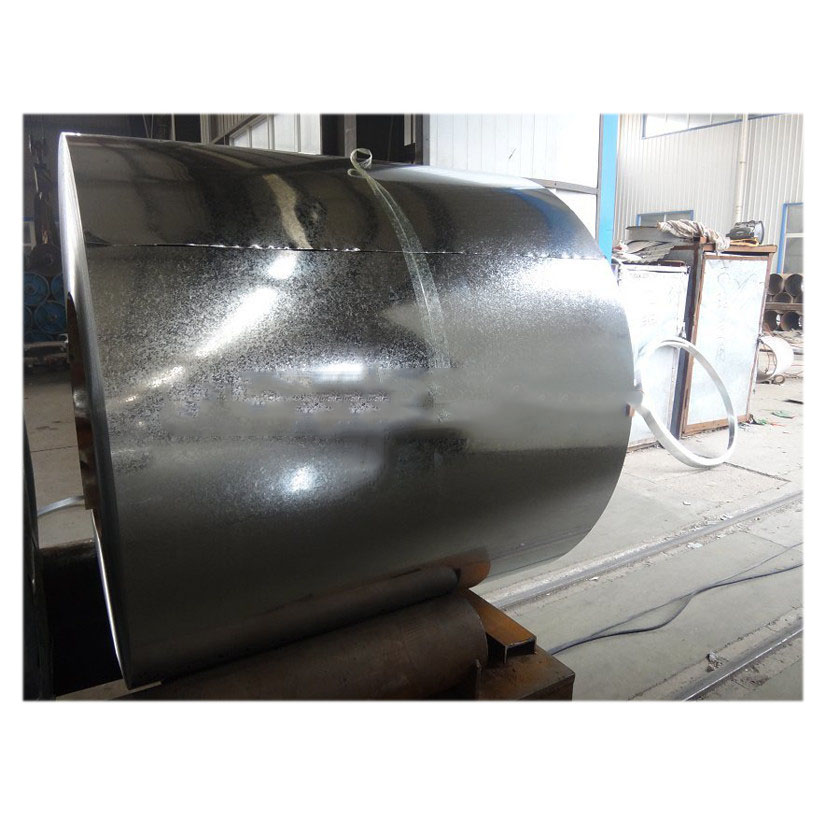
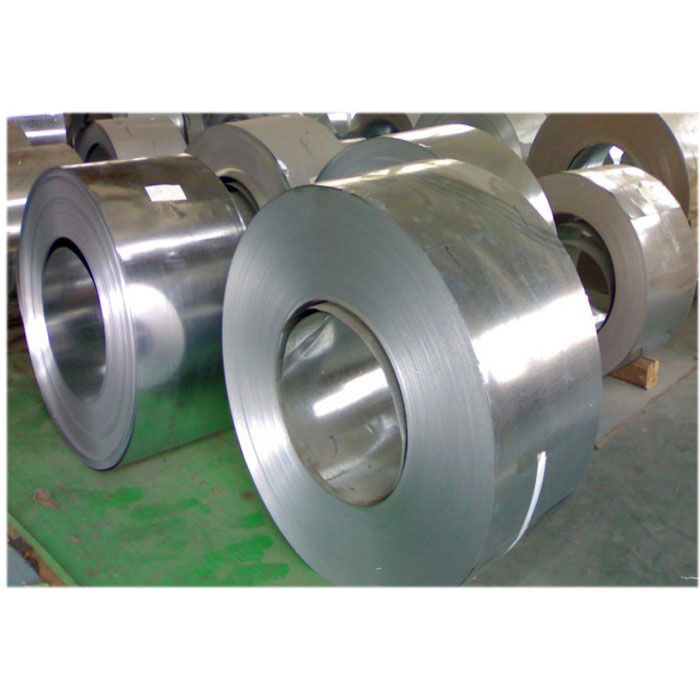
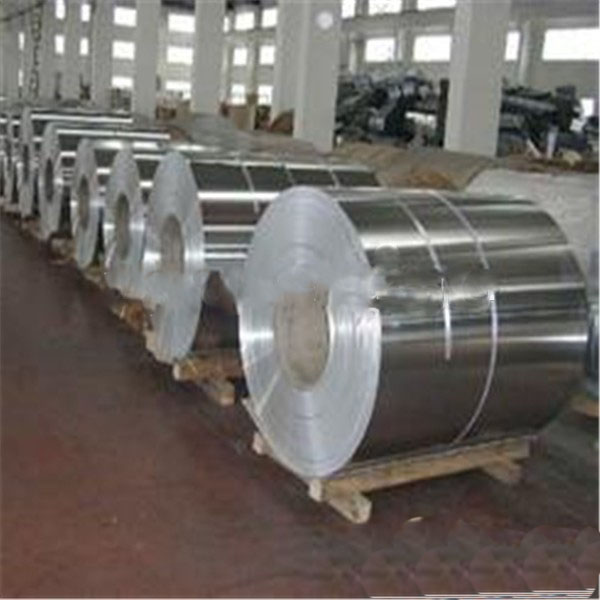
- Q: What is a steel coil?
- A steel coil is a coiled sheet of steel that is typically used in various industries for manufacturing purposes. It is a continuous length of steel that has been wound into a coil shape, making it easier to transport and store. Steel coils are commonly used in the automotive, construction, and appliance industries, among others, for applications such as making metal parts, forming structures, and producing steel components.
- Q: What temp does fire have to be to melt steel?
- more than 300° F
- Q: What are the different types of corrosion protection methods used for steel coils?
- There are several types of corrosion protection methods used for steel coils, including galvanization, painting, powder coating, and chemical treatments. Galvanization involves applying a layer of zinc to the steel surface to provide a barrier against corrosion. Painting and powder coating involve applying a protective layer of paint or powder to the steel, which acts as a barrier against moisture and other corrosive elements. Chemical treatments, such as phosphating or chromating, create a protective layer on the steel surface, preventing corrosion. These methods are used to ensure the longevity and durability of steel coils when exposed to harsh environmental conditions.
- Q: What are the challenges in coil leveling for coated steel?
- To achieve high-quality, flat, and smooth coils, several challenges must be addressed in the process of coil leveling for coated steel. The first challenge lies in the potential damage to the coating during leveling. Coated steel coils are typically covered with materials like zinc or paint, which are susceptible to scratching or marring if mishandled. The leveling process involves passing the coil through a series of rolls, which can cause friction, abrasion, or other mechanical harm to the coating. Therefore, it is crucial to meticulously control the speed, pressure, and alignment of the rolls to minimize coating damage. The second challenge stems from the variations in thickness across the coil. Coated steel coils often exhibit thickness discrepancies due to inherent material properties or production methods. These variations can lead to uneven leveling, resulting in coils with waviness or inconsistent flatness. Achieving uniform leveling across the entire coil surface is vital to ensure consistent quality and appearance of the final product. Another challenge in coil leveling for coated steel is the possibility of shape distortion. The coating processes can introduce stresses into the steel, causing the coil to warp or distort during leveling. This distortion can lead to coils with irregular edges or uneven flatness. Proper control of leveling process parameters, such as the number of passes and applied tension, is necessary to minimize shape distortion. Furthermore, the coil leveling process can generate internal stresses in the steel, especially in cold-rolled or heat-treated coated steels. These internal stresses can result in coil spring-back, where the coil attempts to revert to its original shape after leveling. Spring-back can cause coils with undesired curvature or inconsistent flatness. Effective strategies, such as stress relief annealing or employing counteracting leveling techniques, are essential to minimize spring-back and achieve the desired flatness. Lastly, handling and storing coated steel coils pose challenges in maintaining the quality of the leveled coils. Coated steel coils are sensitive to environmental conditions, such as humidity, temperature, and exposure to corrosive substances. Proper storage and handling practices are crucial to prevent coating damage, rust, or other forms of deterioration that can occur during transportation or storage. In conclusion, the challenges in coil leveling for coated steel involve minimizing coating damage, addressing thickness variation, controlling shape distortion and spring-back, and ensuring proper handling and storage. Overcoming these challenges necessitates precise control of process parameters, the application of suitable leveling techniques, and strict adherence to quality control measures throughout the entire process.
- Q: Can steel coils be coated with zinc?
- Yes, steel coils can be coated with zinc through a process known as galvanization.
- Q: Describe and explain how the differences in the properties of the thee main types of steel allow them to be used in different ways. I have some chemistry homework due in for tomorrow (yes I know i left it a bit late but I really don't like chemistry) and I would love it if I could actually at least pretend to my teacher that I know what she's on about this lesson because honestly, I really don't know what she spends so long telling us all. Any help would be appreciated and points for the best answer!
- Hi, Three Main Types of Steel: 1. Carbon Steel Used in making axes, swords, scissors,cutting tools, vehicle frames. Depends on the % of carbon used how soft the steel will be. 2. Stainless Steel Used in the making of crockery, wrist watches, kitchen utensils, cutlery and surgical equipment. Contains different 11% chromium and some % of nickel. 3. Alloy Steel. Used in making drilling parts, vehicle airplane parts. Stainless steel is also alloy steel but, alloy steel with % of other metals is classified separately.
- Q: i currently have just steel guitar strings, not a fan they need replacing and i was wondering whats the difference between steel and bronze strings and or nickle strings?
- Not all strings have a steel core. There are different substances used for the core on metal guitar strings (not even mentioning nylons), but the market is predominated by a steel core. The tonal properties of what steel strings are wound up by can make a great difference to the overall sound of an instrument. In general, nickel strings are bright but give off well-rounded frequencies and have properties that make them perfect for use with magnetic pickups, such as those used in electric guitars. Bronze-wound strings are a little mellower in timbre but give off more high-low (harmonically rich) frequencies and are favorites on acoustic steel-string guitars. Silk and steel-wound guitar strings are the mellowest sounding and give off more low-mid frequencies than the others. They are generally used for folky types of acoustic playing where little attack is needed. There are others but I won't mention them because you won't find them easily. There are other factors and merits of each type of string like how long they last - Nickel resists corrosion the most; bronze less so; bare steel oxidizes very easily. There is also the way the string is wound to take into account (flat-wound, etc. like the other answerer mentioned).
- Q: How are steel coils used in the production of kitchenware?
- Steel coils are used in the production of kitchenware by being shaped and formed into various utensils and appliances such as pots, pans, knives, and cutlery. The coils are typically cut, stamped, and pressed into the desired shape, then undergo further processes like polishing, coating, and finishing before being assembled into the final kitchenware products.
- Q: How are steel coils used in the production of fencing materials?
- Steel coils are used in the production of fencing materials as they serve as the raw material for manufacturing various types of fencing products, such as chain-link fences, barbed wires, and welded wire meshes. The steel coils are unwound and processed through different manufacturing processes, including cutting, shaping, and welding, to create the desired fencing products. The strength and durability of steel make it an ideal material for fencing, providing security and protection in various applications, such as residential, commercial, and industrial settings.
- Q: Can steel coils be stretched?
- No, steel coils cannot be stretched as they are already tightly wound and have limited flexibility.
Send your message to us
Galvanized Steel Coil High Quality
- Loading Port:
- Qingdao
- Payment Terms:
- TT or LC
- Min Order Qty:
- 1000 PCS
- Supply Capability:
- 20000 PCS/month
OKorder Service Pledge
OKorder Financial Service
Similar products
Hot products
Hot Searches
Related keywords
